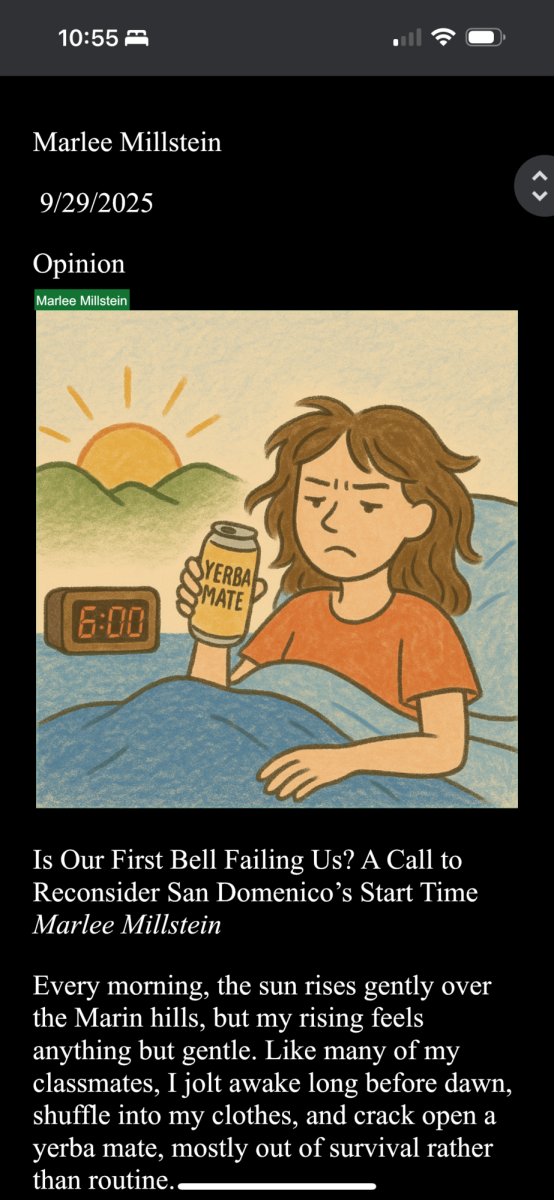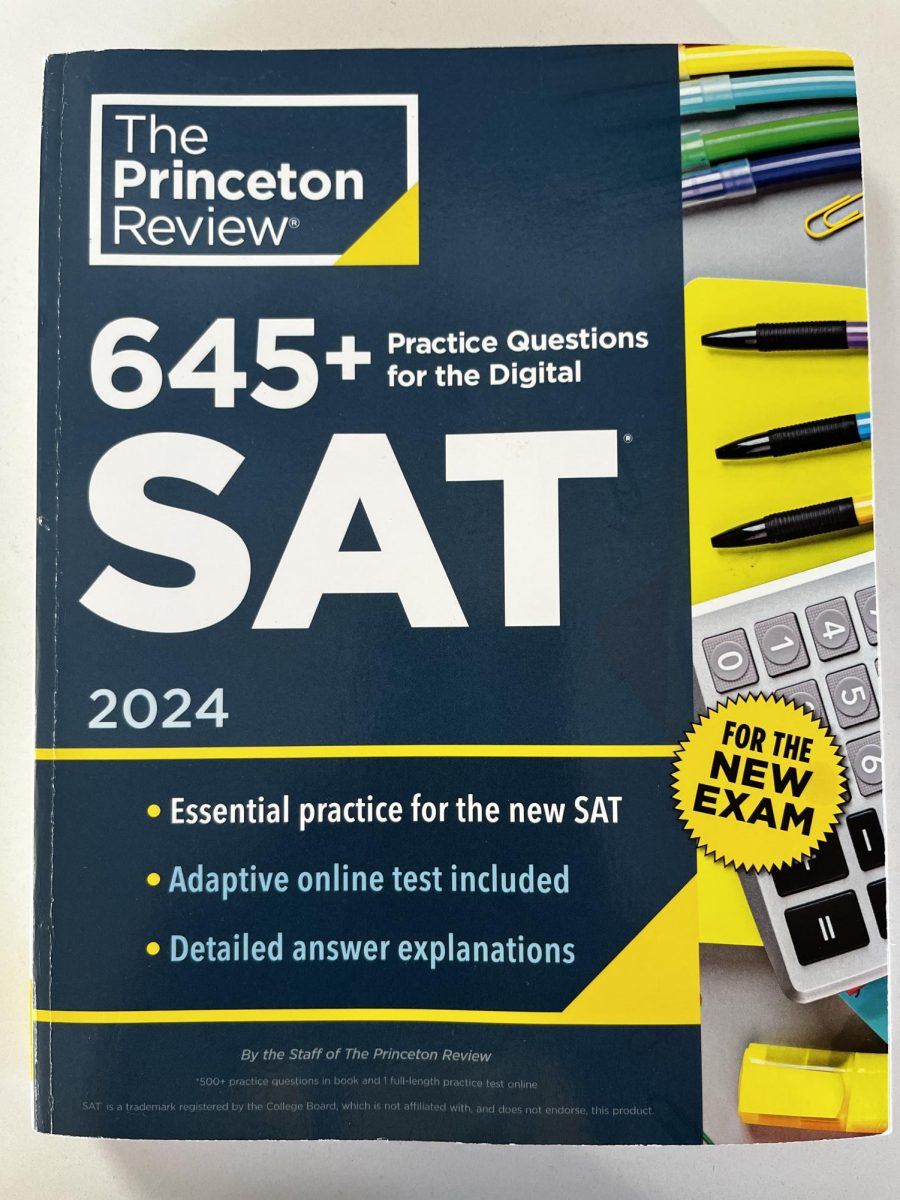Anyone who has and is currently applying to college understands the guessing game of what ifs and maybes. What if the amount of AP and honors classes I’m taking is not enough? Maybe I should do more community service. What if I don’t get a high enough GPA?
Now, a new question has arisen. What if my dream college does not remain test optional?
The uncertainty of SAT or ACT scores being required again is stressing many students out.
When the pandemic hit, most colleges became test optional. As of recently, some selective colleges are reverting back to their pre-pandemic policies. For example, Dartmouth College, Yale, Brown and Harvard University have all declared that they will require SAT or ACT scores for the class of 25’. This many colleges changing their testing policies in just a few months has caused students to rethink their testing strategies. Students who were set on their dream schools remaining test optional are reeling from this new development.
Merritt Sellers, a sophomore at San Domenico, is already preparing for college. Her dream school, Brown University, is one of the few that has started requiring test scores again.
“[Test scores are] definitely really scary, and also puts a whole other level of things I should be worried about for college,” Sellers said.
Furthermore, Sellers hopes to be recruited to Brown for sailing. She mentions that studying for the SAT takes away from vital time she can be practicing sailing or focusing on her grades.
“This summer is going to be a lot more time looking at books and a lot less time actually being out on the water sailing,” Sellers said.
For athletes, the SAT is especially important. Sellers comments on how Brown searches for student athletes with high SAT scores because they believe these students will also have high GPAs; if the athletes on the team have higher GPAs, they will receive more funding.
However, this begs the question: does earning a high SAT score correlate with having a high GPA?
According to a study conducted by research group Opportunity Insights published in The Brown Daily Herald, teenagers who score high on the SAT and ACT typically have higher GPAs, simply because students who work hard to get good grades, also dedicate themselves to study for the SAT or ACT. However, their study also proved that high school GPAs are not good indicators to how students’ GPAs will be in college.
Sierra Anderson, Co-Director of College Counseling at San Domenico, also backs up this claim.
“There is a correlation [between] students’ grades and their testing. Those who have high test scores often tend to have high grade point averages,” Anderson said.
However, Anderson understands that this is not always the case because of a multitude of factors, such as socioeconomic disparities. Many students in low income areas do not have the funding to hire a tutor or pay for multiple tests. This can lead to unfair disadvantages between high income students and low income students.
“They have been working on trying to make [the SAT] as unbiased as possible,” Anderson said. “I do not believe it to be a perfect measurement.”
Additionally, Anderson comments on how there are disparities between students’ natural test taking abilities, giving some students advantages.
“For some students, it is a natural ability to do well in standardized settings,” Anderson said. “For other students, that doesn’t feel like a comfortable way of evaluating their abilities.”
Emma Grasso, a junior at San Domenico, agrees with this concept. Grasso has already taken the SAT twice and is hoping to schedule another test in October. Grasso questions how well the test displays a student’s abilities.
“It is difficult to demonstrate my full range of knowledge and skills under a time constraint in a format that is not entirely conducive to my skills in the real world,” Grasso said.
Grasso comments on how some people have great people skills that will help them be successful in life, which are not displayed during the SAT and ACT. Grasso explains how a real estate agent gains clients’ trust and sells houses through persuasion, being a smooth conversationalist and hard worker; they do not need to know how to solve for pi or if the comma would go before or after the proper noun; thus, a real estate agent’s ability to perform well on a standardized test will not dictate their success. There are many students who will be successful because of their hard work and charm, not their ability to regurgitate information. According to Grasso’s example, SAT scores do not fully grasp a student’s full potential.
Furthermore, Grasso questions the importance of the test’s contents and how well knowing all the information will serve her in life, asking, “Will we ever need to know this math in the real world?”
Despite the fact that some students understand their scores will not dictate their success in life, and most of the content will not apply to their jobs, there is still anxiety around getting a good score.
“I am very stressed about the SAT scores [being required again] because the more schools that are requiring it the more pressure on getting a good test score,” Grasso said.
Students put a tremendous amount of pressure on their SAT score; however, Anderson assures students that their scores are not as vital as some think.
“The test is [only] one data point. The most important piece of data that you’re submitting is your academic history,” Anderson said. “The courses that you chose to take, the rigor that you chose to engage in and the grades that you earned in those courses over the four years of high school. That’s the number one factor.”
Anderson emphasizes how the test is “not the most important thing.”
Whether you are a junior who already took the test or a sophomore who is going to take it, Anderson has advice to help alleviate stress overall.
“There’s going to be individual ways that students approach and feel about the ACT or SAT. If students can understand that it is not the only important factor that will either admit them or deny them from a college, that maybe that can help reduce anxiety,” Anderson said. “If you prepare and there are ways to prepare for it, then you’re showing up as yourself for the test.”
Furthermore, Anderson comments on how most schools that students will apply to will remain test optional for at least the class of 25’. At this point in time, the vast majority of colleges in the United States are test optional or test free.
“It’s less than 10% of schools [that are requiring scores]. And that’s not expected to change,” Anderson said. “We might see a few more of the highly selective schools. I’m talking about schools with less than 20% admission rate, returning to requiring tests.”
As of now, there are a few categories: test free, test optional and test required. For example, the UC’s are all test free, meaning that they will not look at students’ test scores no matter what. Test optional is the majority, with schools such as Columbia, Cornell and Stanford remaining test optional for class of 25’. As of now, tests being required on applications is the least common, with only a few selective schools reverting back.
The SAT and ACT can seem to be quite daunting to students, especially if schools they are applying to have started requiring scores again; however, students should remember that getting a high or low score will not be the sole factor that either admits or denies them from a college. It is important for students to take some of the pressure off themselves to get a perfect SAT or ACT score.






















